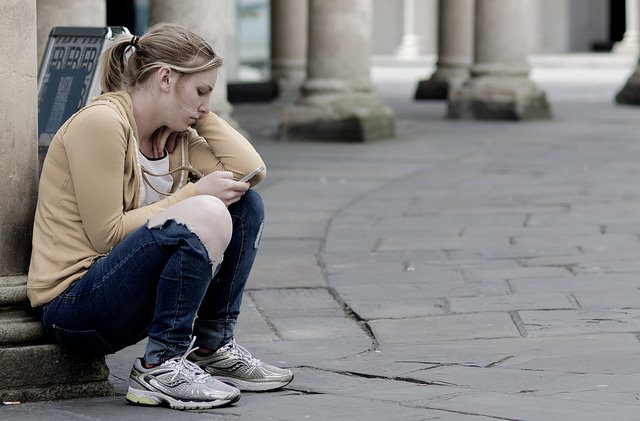 Recently Danielle Kurtzleben had this to say for online publisher Vox Media about mental health and the economy:
Recently Danielle Kurtzleben had this to say for online publisher Vox Media about mental health and the economy:
Only a limited set of topics bring mental illness into the news. Obamacare’s mental health coverage requirements briefly brought mental health into the spotlight. And every time there’s a mass shooting in the US (disturbingly regularly, as it turns out), it also sparks a conversation about mental illness. But another American crisis, the persistently weak economy, is also a mental health issue. And it’s a mental health issue that often goes unspoken.
Mental illness is tightly bound up with economic well-being, as it turns out. Being out of work hurts mental health, and severe mental illness keeps lots of people out of work. And even more upsetting, growing up poor can make a person more susceptible to some forms of mental illness, creating a sort of vicious cycle. Here are three ways mental and economic well-being play into each other.
1) Unemployment makes for mental health problems
Losing a job often causes depression–and when people lose a job, they often lose health insurance and thus access to mental health treatment.
2) Poverty and mental illness can create a vicious cycle
This economic-psychiatric cycle can be even more insidious, spanning generations. Being poor — particularly as a child — can make mental health problems even more likely down the road.
According to one 2013 paper from researchers at Cornell University, children raised in poverty were more likely to act out aggressively or exhibit “learned helplessness” — a condition in which people believe and act as if there is no escape from their illness. Another 2013 study found that poor housing is connected with later emotional and behavioral problems.
Danielle adds that these things don’t always go together, but poverty increases the probability of mental illness while decreasing access to care:
Poverty doesn’t always make for mental problems. Many people born in poor or economically stressful settings will end up perfectly healthy mentally, she adds, but the stress of growing up in poverty can cause mental illness to present itself….the common phrase to describe this phenomenon is that “genetics loads the gun, but environment pulls the trigger.”
3) Severe mental illness makes for very, very high unemployment
“People with severe mental illness have an unemployment rate of 85, 90 percent,” estimates Brent Peterson, vice president of development and marketing at Thresholds, a mental health service provider in Chicago. And though illness makes work difficult for some of these people, he says many capable workers are excluded from work by the stigma of mental illness — too often, employers think mental illness means cognitive deficiencies.
Ironically, such people often want to work for their own well-being:
Working can, in fact, be part of a structure that can make an illness more livable. “Work is a very, very important part of recovery for people,” says Ron Homberg, director of policy and legal affairs at the National Alliance on Mental Illness. “When you ask someone with a serious mental illness what would be important for them, work is right at the top of the list.”
The article simply points out these facts for employers and helping professionals to consider. But as Christians, we ought to think about them more deeply. What can we do to help people trapped in these kinds of situations? If you are speaking from this kind of a place in your own journey, what could the church do to help you?
Image: “Feeling Sad” by Just Ard, used under a Creative Commons license.












